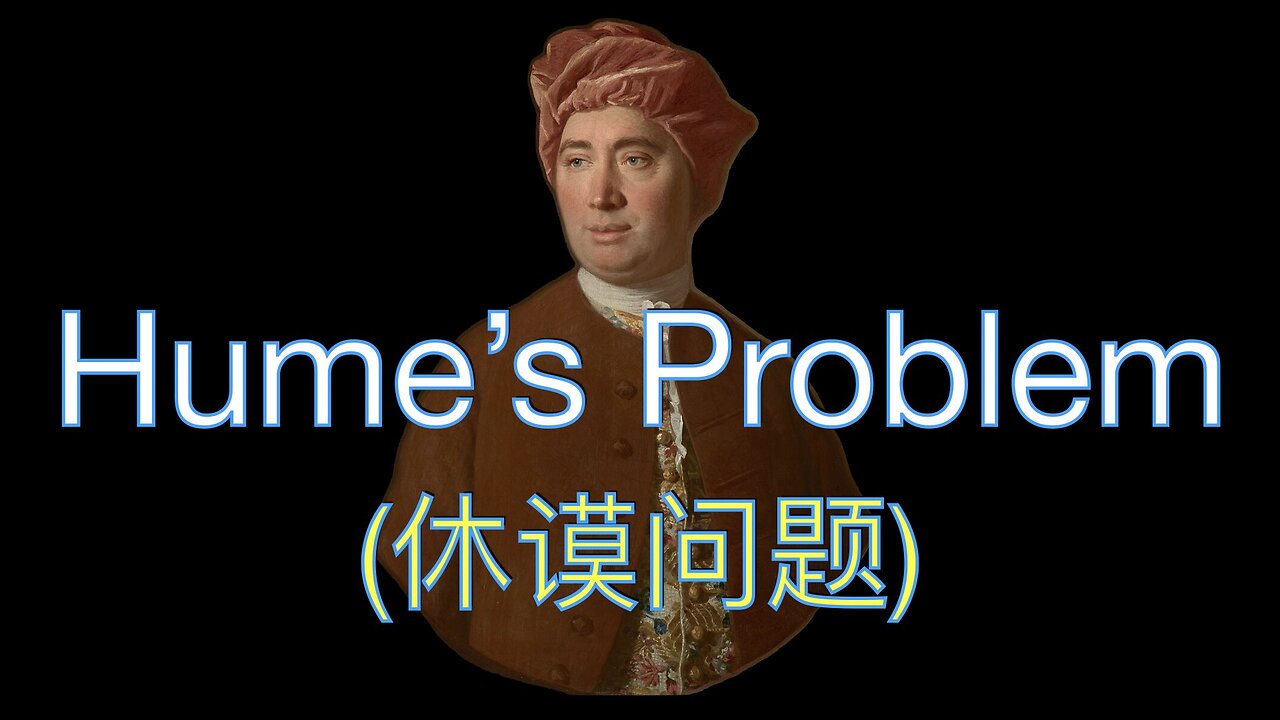Premium Only Content

China Fixes Hume's Problem? Bridging “Is” and “Ought” (休谟问题与新自然法学)
Can moral law arise from human reason alone? This academic reflection explores The Grisez–Finnis New Natural Law Theory’s Approach to Hume’s Problem (郁晨翱, 2025). We trace the philosophical journey from David Hume’s skepticism to John Finnis’s practical reason, uncovering how the New Natural Law School resolves the classic gap between "is" (实然) and "ought*" (应然). Through concepts like 不证自明 (self-evidence) and 实践理性 (practical reason), this episode shows how human initiative replaces metaphysical certainty — reviving natural law for the modern age. Perfect for listeners interested in jurisprudence, moral philosophy, and the dialogue between Chinese and Western thought.
Hume’s Problem 休谟问题, Natural Law 自然法, Practical Reason 实践理性, John Finnis 菲尼斯, Germain Grisez 格里塞茨, Jurisprudence 法理学, Philosophy of Law 法哲学, Ethics 伦理学, Is–Ought Problem 实然与应然, Human Flourishing 人类幸福, Self-Evidence 不证自明, Legal Philosophy 法律哲学
Time Codes
00:00 - Hume's Problem
00:57 - Part 1 — Setting the Stage: What Is Hume’s Problem?
02:02 - Part 2 — From Philosophy to Jurisprudence
03:15 - Part 3 — Classical Natural Law and Its Crisis
04:21 - Part 4 — The Grisez–Finnis Turn: A New Natural Law
05:22 - Part 5 — The Core Idea: Practical Reason (实践理性)
06:38 - Part 6 — The Philosophical Achievement
07:38 - Part 7 — From Subjectivity to Initiative
08:26 - Part 8 — Reflections and Implications
09:09 - Conclusion and Reflection Questions
Advances in Social Sciences 社会科学前沿, 2025, 14(9), 403-410
Published Online September 2025 in Hans. https://www.hanspub.org/journal/ass
https://doi.org/10.12677/ass.2025.149820
格里塞茨–菲尼斯新自然法学对休谟问题
的处理
郁晨翱
-
 1:06:37
1:06:37
Chad Prather
8 hours agoFinding God in a Fear Addicted World!
31.9K11 -
 LIVE
LIVE
LFA TV
11 hours agoLIVE & BREAKING NEWS! | MONDAY 10/20/25
3,601 watching -
 LIVE
LIVE
The Chris Salcedo Show
16 hours agoThe Left Won't Give Up Totalitarian Power Easily
539 watching -
 LIVE
LIVE
Joe Donuts Live
3 hours ago🟢How It All Began — Mafia: Definitive Edition Story Mode | The Monday Job
143 watching -
 1:38:19
1:38:19
NAG Podcast
15 hours agoSay Something Beyond W/MikeMac: INSURRECTION BARBIE - Ep.10
25.9K3 -
 LIVE
LIVE
TonYGaMinG
1 hour ago💥Midnight Walkers last day of playtest!
56 watching -
 LIVE
LIVE
FyrBorne
12 hours ago🔴Battlefield 6 Live M&K Gameplay: How To Snipe Without Target Finder
62 watching -
 13:29
13:29
Daniel Davis Deep Dive
1 day agoCol Doug Macgregor: NATO Hungry for MORE WAR
20.2K3 -
 8:27
8:27
BlackDiamondGunsandGear
1 year agoThis 100 Year old Shotgun, is Full Auto?
9.24K5 -
 40:31
40:31
Degenerate Plays
16 hours ago $1.01 earnedWe Need A Big Controversy - Batman: Arkham Asylum : Part 14
17.9K